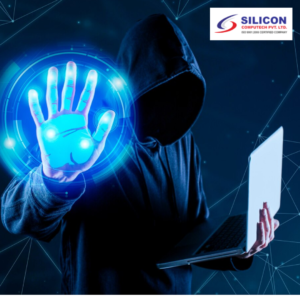Category: Cyber Security
-

What should you do to keep yourself...
Continue ReadingUser security is the foremost and one of the most important because it helps institutions, companies, and their users. It helps to protect different types of people / stakeholders data of any organization – employee, customer, and corporate data from threats, financial loss, and identity theft.
It is the end level of security which helps organizations to achieve regulation compliance, prevent financial damage, reputational damage and also maintain customer trust.
What does it mean to be user level security?
Various security measures are implemented at end user level in their computers, softwares, tools, devices and data they use. To protect user and corporate data, different solutions, measures are implemented. Also, end users including staff are given security related training.
Users include IT staff, network, developers and staff who work in administration and operations.
Common measures for end users in cybersecurity
An end user needs to maintain healthy digital practices to prevent loss of data. They can avoid cyberattacks by following means.
1. Keeping strong passwords. End user needs to keep a long password using small letters and capital letters including numbers and symbols.
2. Organizations can implement strong user password policy which can enforce users to change their passwords every 15 days or 1 month and keep passwords containing around 12-16 characters including characters, numbers, symbols etc.
3. Keeping multi factor authentication (MFA) by keeping mobile no or email for allowing OTP.
4. Keeping software up to date by maintaining the latest versions and adding latest security patches.
5. Avoiding suspicious emails and not opening links.
6. Being vigilant and reporting security incidents.
7. Adhering corporate security policy.
8. Install and maintain antivirus and antimalware software on your devices.
9. Keep regular backup of data at multiple sites to prevent data loss because of cyberthreats and viruses.
10. Do not share private information on social media and also review privacy settings. Also, please do a review before giving access permission to different apps on mobile and computers.
12. Scan external storage devices before using it.
13. Use and keep an active firewall on computers and laptops. Windows has its own Firewall which helps the system to prevent cyberattacks.
14. Organizations can implement techniques like encryption, data loss prevention, and advanced threat protection to safeguard sensitive user and corporate data at individual user level.
15. Avoid using public computers or systems while accessing important data or company networks. Also, do not use public internet networks(WiFi) to use corporate networks, financial applications or doing financial transactions. There are high chances of data
breaches.
16. Invite employees of the organization to participate in various sessions/ meetings related to cybersecurity and latest trends going in cybersecurity -

KD Hospital Hit by Ransomware Attack, Hackers...
Continue ReadingIntroduction:
- Overview of the Incident: KD Hospital in Gujarat was targeted by a ransomware attack on May 13, 2023, leading to the encryption of critical data, including patient records and CCTV footage. Hackers demanded a $70,000 ransom in bitcoins for decrypting the data.
Incident Details:
- Impact on Hospital Operations: Although the hospital’s online systems were temporarily affected, manual operations continued, and healthcare services remained unaffected. The hospital has since restored its servers, adding an extra backup server for future protection.
- Ongoing Investigation: The National Forensic Sciences University (NFSU) and cybercrime police are currently investigating the attack. An audit report is expected to identify system vulnerabilities and guide necessary IT infrastructure updates.
Legal Actions:
- Filing of FIR: An FIR was filed under IPC sections 384 and 511, along with IT Act sections 43 and 66, based on a complaint from the hospital’s IT official. The FIR aims to hold the perpetrators accountable and deter future attacks.
Ransom Demand and Response:
- Hackers’ Communication: The attackers instructed the hospital to contact them via email for data decryption. They initially demanded a $70,000 ransom in bitcoins, with a potential for negotiation indicated in a subsequent email.
- Hospital’s Response: KD Hospital is working with law enforcement and cybersecurity experts to address the attack, with no immediate indication that the ransom has been paid.
Lessons for Healthcare Organizations:
- Cybersecurity Vulnerabilities in Healthcare: The attack highlights the susceptibility of healthcare institutions to ransomware due to their reliance on digital records and the sensitivity of the data they manage.
Protective Measures:
- Strengthen Cybersecurity Protocols: Implement multi-factor authentication, regular software updates, and strong encryption methods.
- Backup and Disaster Recovery: Ensure that robust backup systems are in place to recover data in case of an attack.
- Employee Training: Educate staff about cybersecurity risks and safe online practices to minimize human error.
Conclusion:
- Proactive Cybersecurity: Healthcare organizations must adopt comprehensive cybersecurity measures to protect against ransomware and other cyber threats, ensuring the continuity of critical healthcare services.
Secure Your Healthcare Organization Today
Protect Your Patients, Data, and Operations with Expert Cybersecurity Solutions from Silicon Computech
User security is the foremost and one of the most important because it helps institutions, companies, and their users. It helps to protect different types of people / stakeholders data of any organization – employee, customer, and corporate data from threats, financial loss, and identity theft. It is the end level of security which helps...Introduction: The client is a privately held Dubai-based conglomerate and has its operations and assets spread across the UAE. It operates across different lines of business, including real estate, hospitality, retail, food and beverages (F&B), leisure, healthcare, and entertainment. Challenges Faced: Difficulty in tracking incomplete applications and generating reports Disjointed systems Long processing cycle times...Introduction: Our client is the largest publicly traded property and casualty insurance company in the United States and a constituent of the Dow Jones Industrial Average. They offer a wide range of insurance products, encompassing auto, property, and commercial lines. The client handles complex, multi-decade injury and environmental claims, often involving multiple parties, predominantly reliant on...- 1
- 2